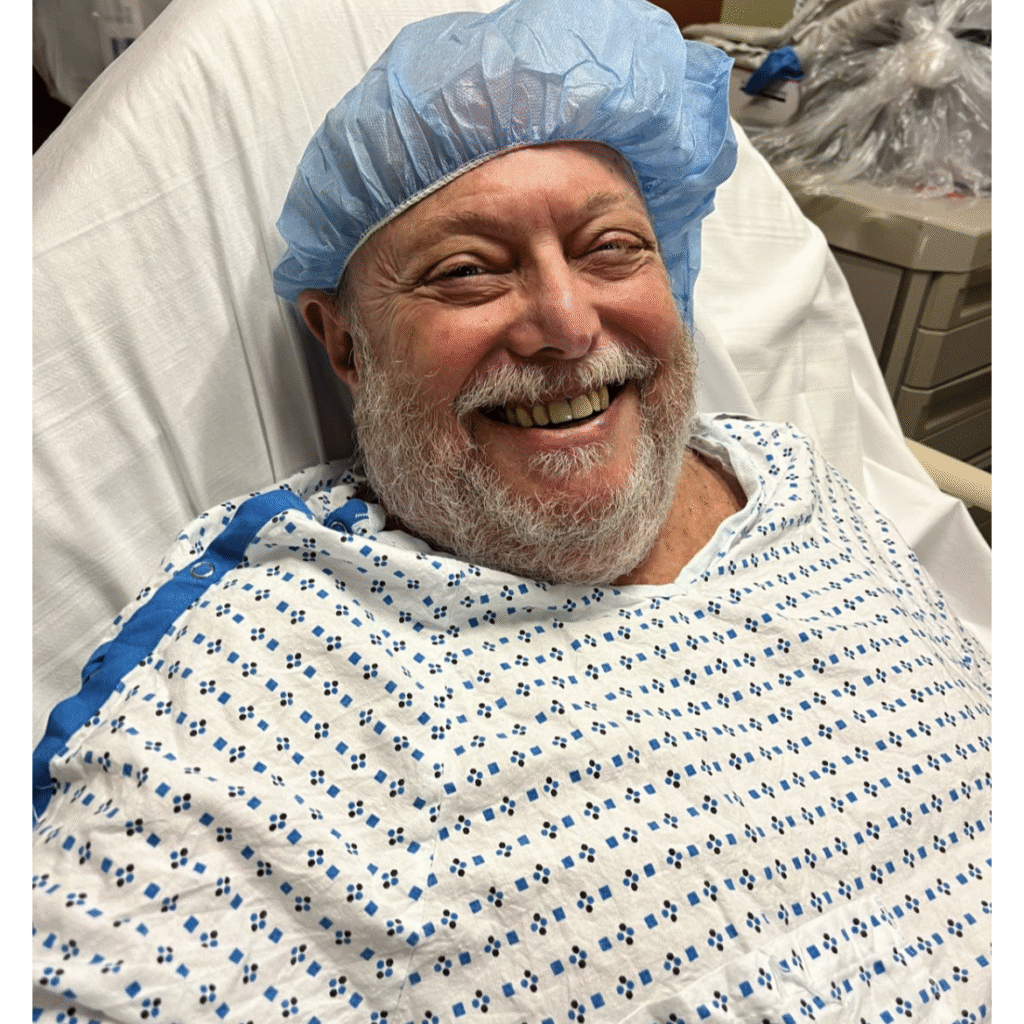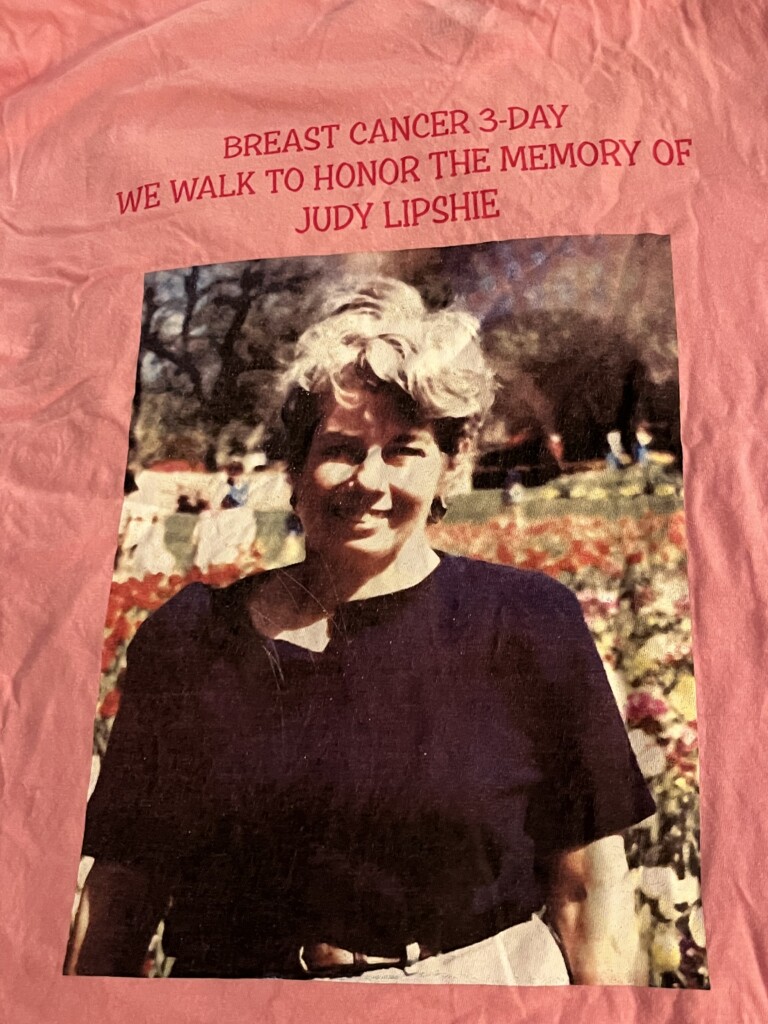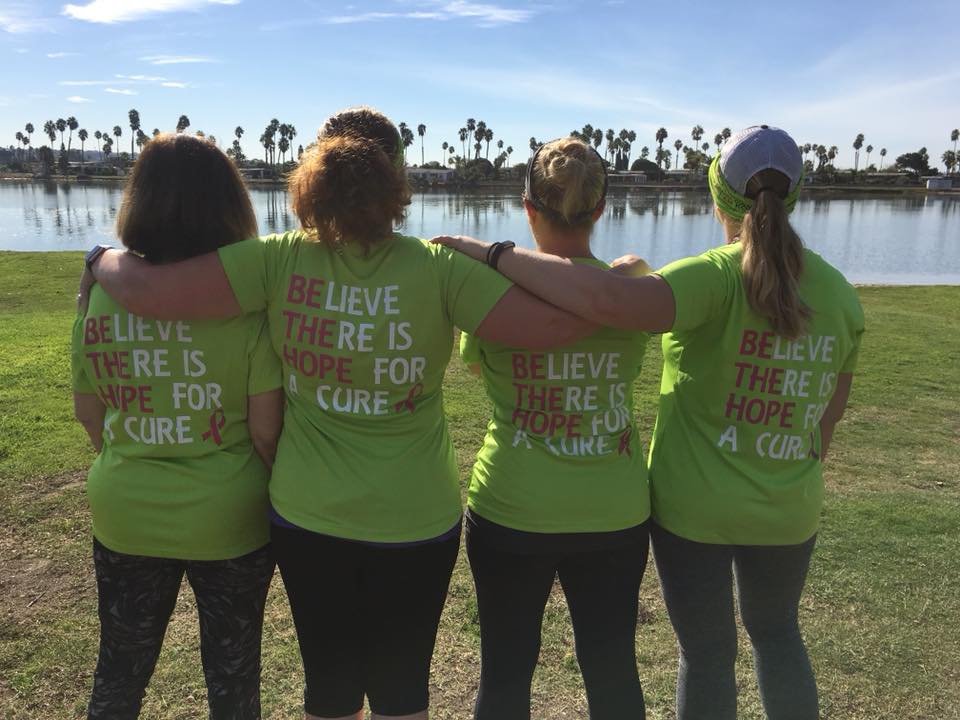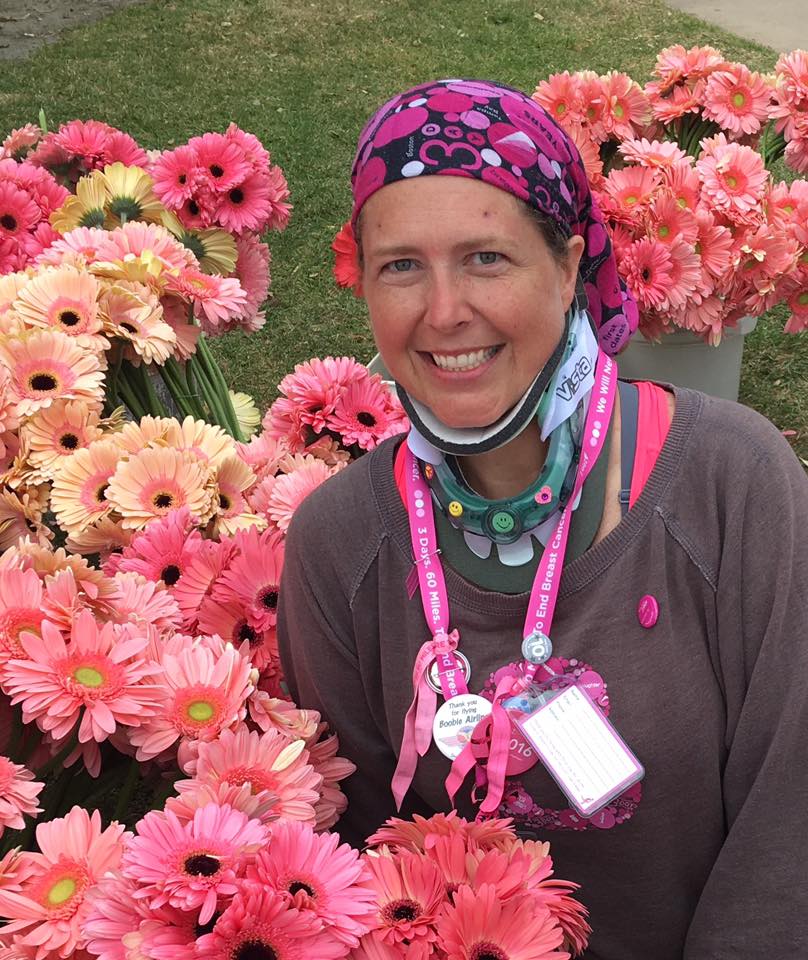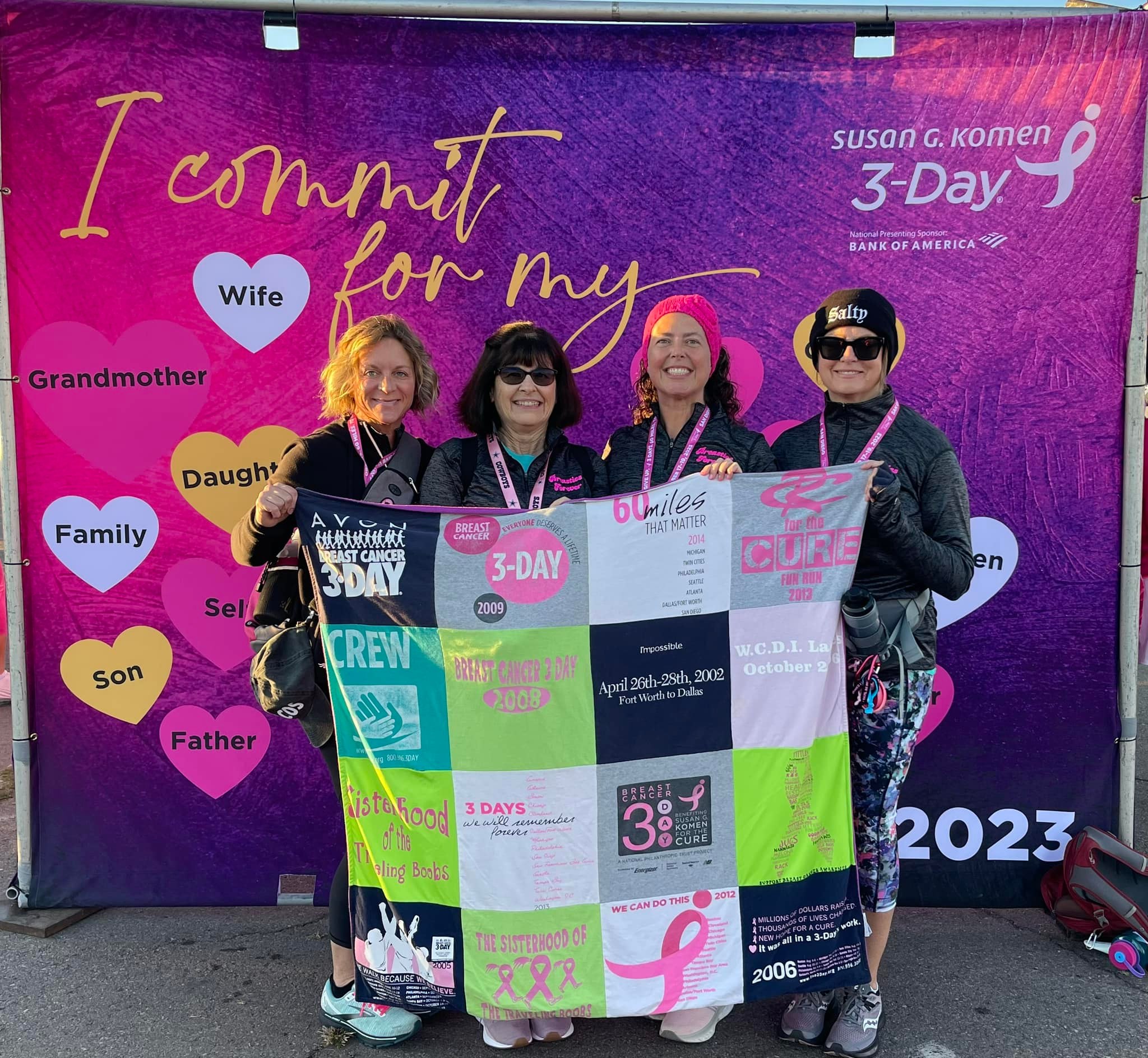
If you’ve walked in the Susan G. Komen San Diego 3-Day®, you’ve likely seen—or taken a photo with—Tamara M., known in the Pink Bubble community as “the Crazy Sign Lady.”
Tamara has been a familiar face along the San Diego 3-Day route since 2013, but few know the story behind why she shows up year after year. It started when her sister walked the 3-Day in their hometown, and Tamara decided to cheer her on.
“I came out to show her my support and that’s all it took. I was hooked,” Tamara explained. “The signs I made for her that first year were simple; teasing her about how many miles she had left and encouraging her at the same time.”
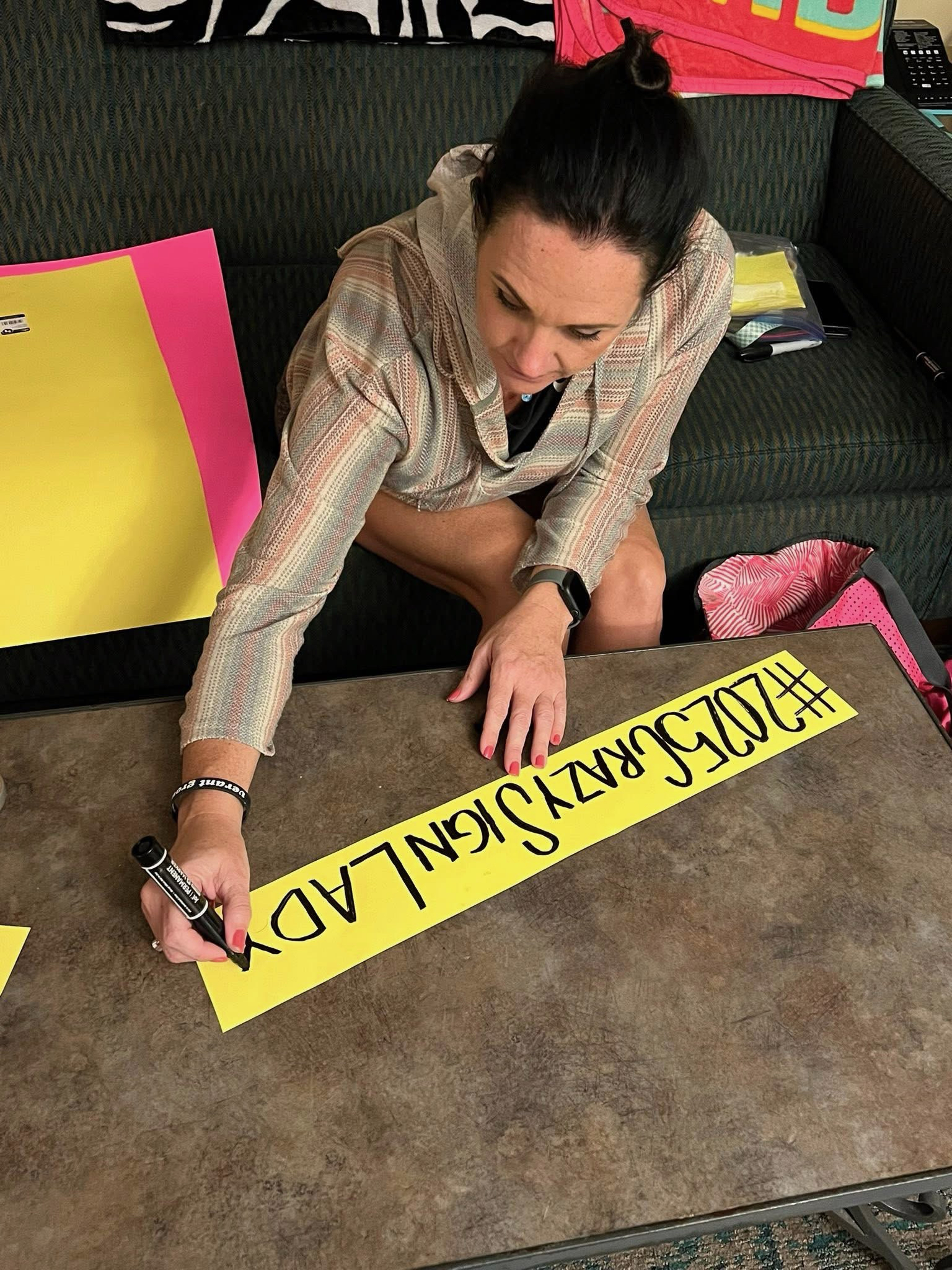
But “the Crazy Sign Lady” didn’t truly emerge until the next year, when other 3-Day walkers began noticing her.
“Some of them hated it at first, and I get it,” she said with a laugh. “The sign telling you how many miles are left when you just started can feel like a lot.”
Over time, walkers grew to appreciate her presence along the 3-Day route.
“They’d say, ‘Wow, you’re crazy. You’re everywhere!’” she said.
Growing Up With the 3-Day
Tamara has lived in Arizona for the last seven years but returns to San Diego every fall for the 3-Day. Her children, now 10 and 8, have grown up attending the event, often holding signs beside their mom to support the walkers.
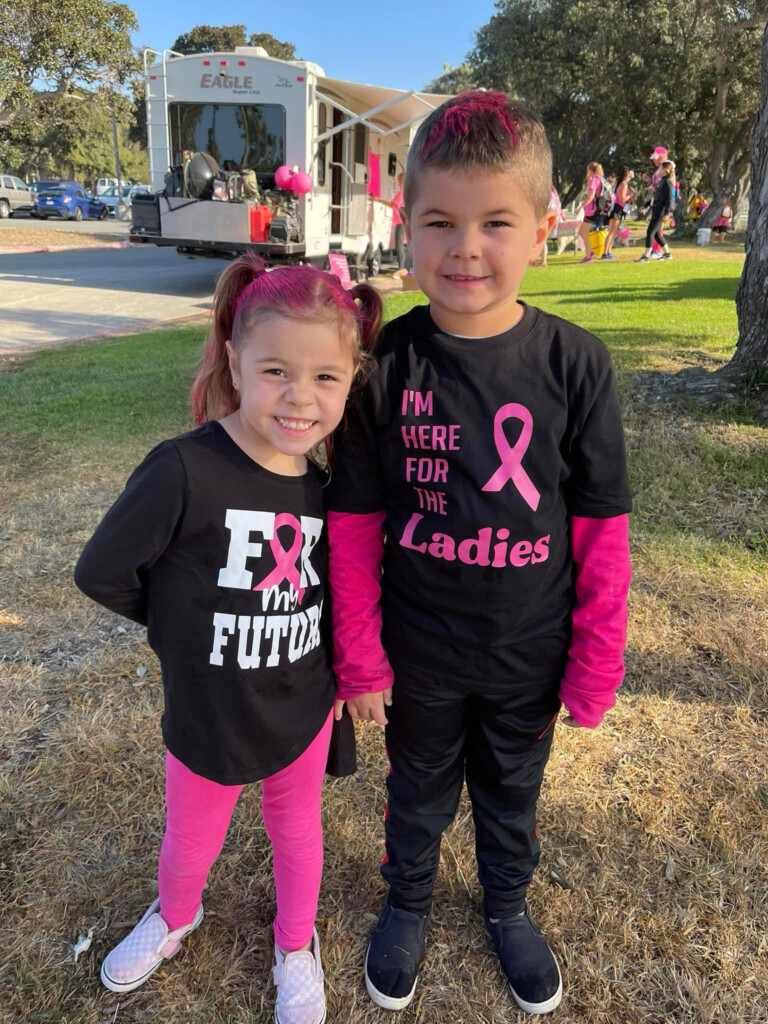
“I held signs while I was pregnant. I held signs with a baby carrier on my chest,” she said. “There are walkers who have pictures with my kids. They’ve hugged them and loved them. They’ve grown up with this community, too.”
A Deep Connection to Walkers
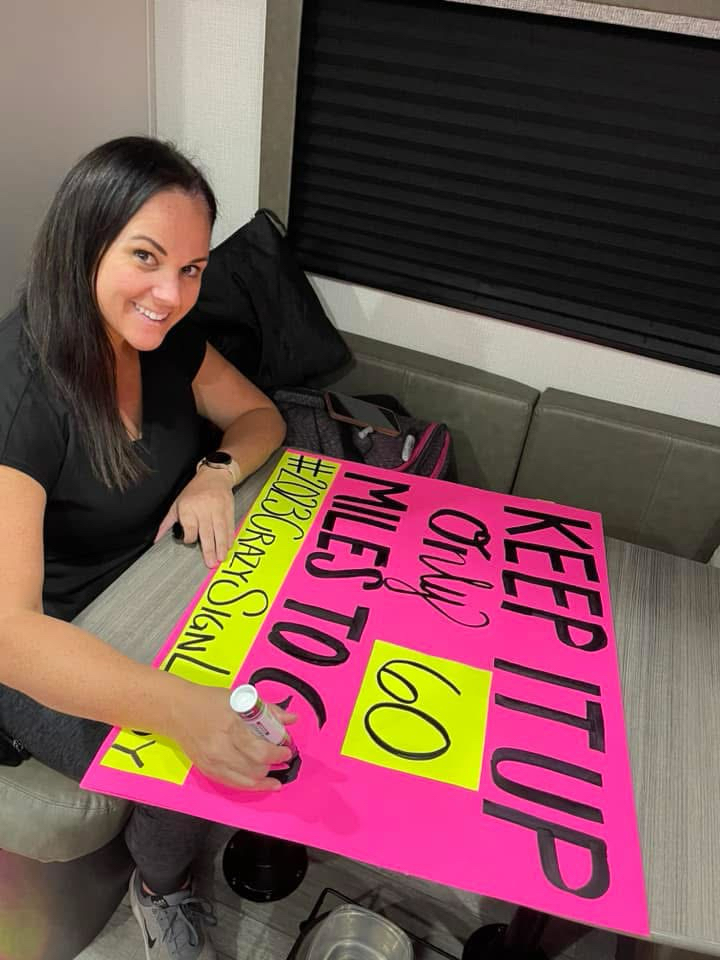
While some supporters eventually become walkers, Tamara believes her role is exactly where it needs to be. Her heart has become tied to every person on the 3-Day route and to their stories—walking in celebration, in memory and in support of those undergoing treatment for breast cancer.
“If I walked, my signs would be missing, and I think I’d be letting the 3-Day family down,” she said. “This is my role. This is how I serve. They walk miles; I hold the signs. We carry each other through.”
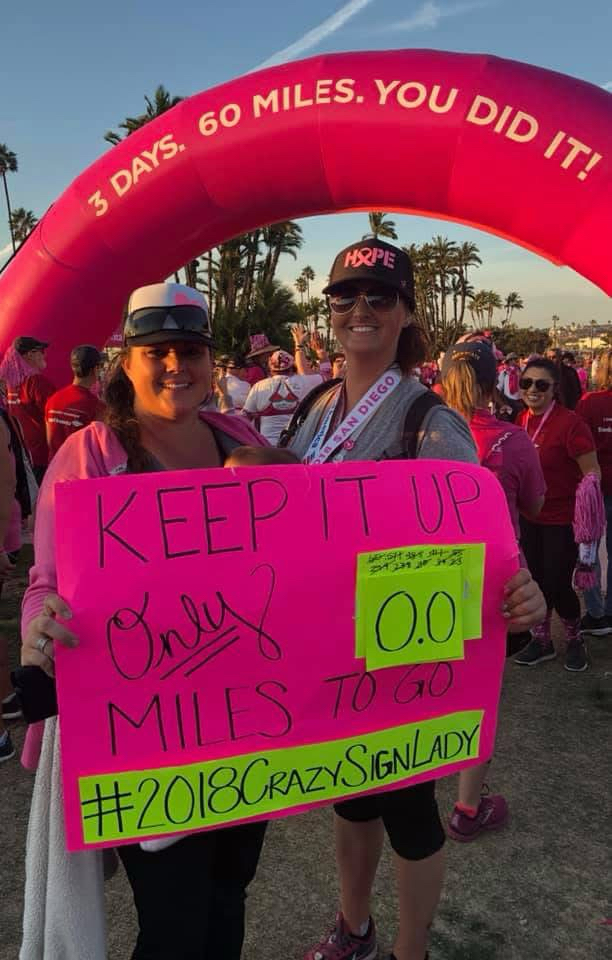
And at the finish line, that connection is undeniable.
“When I’m hugging walkers who are tired and blistered, sometimes I’m physically holding them up,” Tamara explained. “We’re both crying. That’s the symbolism for me—they may be walking miles, but they’re not walking alone.”
To learn more about the 3-Day visit the3day.org.

